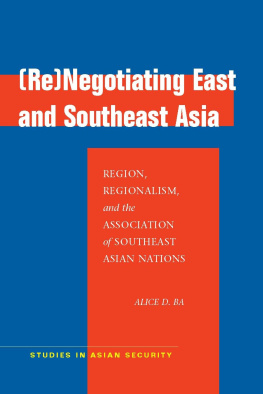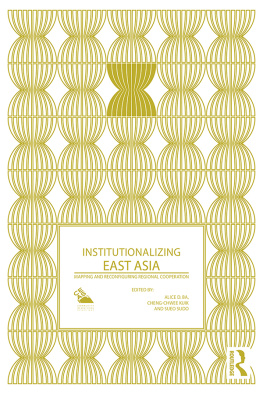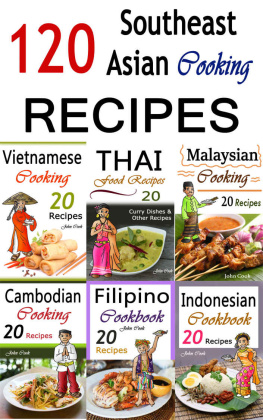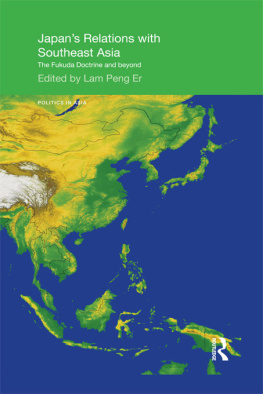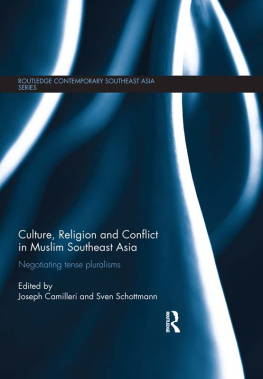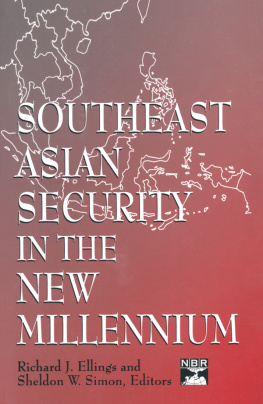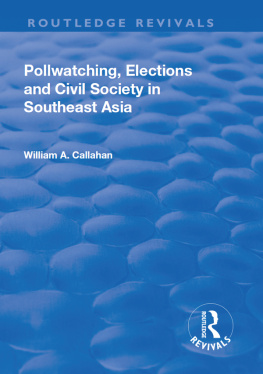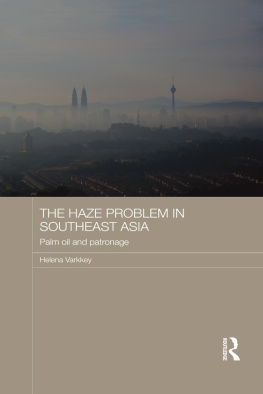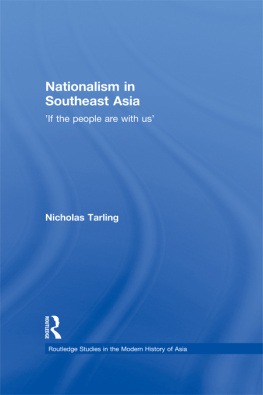SERIES EDITORS
Muthiah Alagappa
East-West Center
Amitav Acharya
University of Bristol
David Leheny
Princeton University
Alastair Iain Johnston
Harvard University
T. V. Paul
McGill University
Randall Schweller
The Ohio State University
INTERNATIONAL BOARD
Rajesh M. Basrur
Nanyang Technological University
Barry Buzan
London School of Economics
Thomas J. Christensen
Princeton University
Stephen P. Cohen
The Brookings Institution
Chu Yun-han
Academia Sinica
Rosemary Foot
University of Oxford
Aaron L. Friedberg
Princeton University
Sumit Ganguly
Indiana University, Bloomington
Avery Goldstein
University of Pennsylvania
Michael J. Green
Georgetown University; Center for
Stratetgic and International Studies
Stephan M. Haggard
University of California, San Diego
G. John Ikenberry
Princeton University
Takashi Inoguchi
Chuo University
Brian L. Job
University of British Columbia
Miles Kahler
University of California, San Diego
Peter J. Katzenstein
Cornell University
Khong Yuen Foong
University of Oxford
Byung-Kook Kim
Korea University
Michael Mastanduno
Dartmouth College
Mike Mochizuki
The George Washington University
Katherine H. S. Moon
Wellesley College
Qin Yaqing
China Foreign Affairs University
Christian Reus-Smit
Australian National University
Varun Sahni
Jawaharlal Nehru University
Etel Solingen
University of California, Irvine
Rizal Sukma
CSIS, Jakarta
Wu Xinbo
Fudan University
Studies in Asian Security
A SERIES SPONSORED BY THE EAST-WEST CENTER
Muthiah Alagappa, Chief Editor
Distinguished Senior Fellow, East-West Center
The Studies in Asian Security book series promotes analysis, understanding, and explanation of the dynamics of domestic, transnational, and international security challenges in Asia. The peer-reviewed publications in the Series analyze contemporary security issues and problems to clarify debates in the scholarly community, provide new insights and perspectives, and identify new research and policy directions. Security is defined broadly to include the traditional political and military dimensions as well as nontraditional dimensions that affect the survival and well being of political communities. Asia, too, is defined broadly to include Northeast, Southeast, South, and Central Asia.
Designed to encourage original and rigorous scholarship, books in the Studies in Asian Security series seek to engage scholars, educators, and practitioners. Wide-ranging in scope and method, the Series is receptive to all paradigms, programs, and traditions and to an extensive array of methodologies now employed in the social sciences.
The East-West Center is an education and research organization established by the U.S. Congress in 1960 to strengthen relations and understanding among the peoples and nations of Asia, the Pacific, and the United States. Funding for the Center comes from the U.S. government, with additional support provided by private agencies, individuals, foundations, corporations, and the governments of the region.
(Re)Negotiating East and Southeast Asia
Region, Regionalism, and the Association of Southeast Asian Nations
Alice D. Ba
Stanford University Press
Stanford, California
2009 by the Board of Trustees of the Leland Stanford Junior University. All rights reserved.
No part of this book may be reproduced or transmitted in any form or by any means, electronic or mechanical, including photocopying and recording, or in any information storage or retrieval system without the prior written permission of Stanford University Press.
Printed in the United States of America on acid-free, archival-quality paper
Library of Congress Cataloging-in-Publication Data
Ba, Alice D.
(Re)negotiating East and Southeast Asia : region, regionalism, and the Association of Southeast Asian Nations / Alice D. Ba.
p. cm.(Studies in Asian security)
Includes bibliographical references and index.
9780804776301
1. Southeast AsiaForeign relations. 2. Southeast AsiaPolitics and government1945- 3. ASEAN.4. RegionalismSoutheast Asia. 5. RegionalismEast Asia. 6. Southeast AsiaForeign relationsEast Asia. 7. East AsiaForeign relationsSoutheast Asia. I. Title. II. Title: Renegotiating East and Southeast Asia. III. Series: Studies in Asian security.
DS525.8.B33 2009
341.2473dc22
2008047523
Typeset by Thompson Type in 10.5/13.5 Bembo
Just as none of us is outside or beyond geography, none of us is completely free from the struggle over geography. That struggle is complex and interesting because it is not only about soldiers and cannons but also about ideas, about forms, about images and imaginings.
Edward Said
Culture and Imperialism (1993)
Acknowledgments
Like ASEAN, this book is the product of an extended process that has involved multiple renegotiations, much rethinking, and more than one crossroad. Perhaps, it is no surprise given the nature of the process that I have also accumulated a great many debts. My greatest debts are to those who provided guidance and careful comments since the projects earliest iterations. Brantly Womack and John Echeverri-Gent at the University of Virginia not only took considerable time and care in reading early drafts but were also unfailing in their encouragement from beginning to end. In addition, I owe a particular debt to Matthew Hoffmann who read multiple drafts at later stages. I have been fortunate to have him as both colleague and friend.
This manuscript has also benefited from the conscientiousness of its anonymous reviewers. Their pointed comments and constructive critiques served to sharpen the overall argument. Thanks are additionally due to Daniel Green and Stuart Kaufman for their input on certain chapters. I am also indebted to Amitav Acharya and Richard Stubbs, both of whom offered much-appreciated encouragement and comments early in the process; David Elliott at Pomona College, who (unbeknownst to him) put me on this path early on; Yuen Foong Khong for his support; both Muthiah Alagappa at the East-West Center and the Studies in Asian Security Series editorial committee for their commitment to the project; and Geoffrey Burn for his editorial guidance.
I would be most remiss if I did not also thank some of my fellow ASEAN travelersespecially Mely Caballero-Anthony, Shaun Narine, and Helen Nesadurai, whose intellectual contributions sharpened my thinking. They provided occasional voices over my shoulder, and their friendship made the process enjoyable. Thanks also to my various comrades along the way, especially Patrick Pillai and Dan Slater, both of whom will always be associated with Malaysia for me, as well as Amy Nagle, Peter Ronayne, Christine Spillane, and Kevin Tarmann.
My appreciation also goes to the ASEAN-ISIS networkwith particular thanks to the Centre for Strategic and International Studies in Jakarta, ISIS-Malaysia in Kuala Lumpur, and Carolina Hernandez at the University of the Philippines for their help in facilitating interviews, access to materials, and for introducing me to the world of ASEAN Track 2. Thanks also to those at the Rajaratnam School of International Studies in Singapore, who have provided an intellectual community and have helped to keep me current; the various academics and officials in Bangkok, Jakarta, Kuala Lumpur, Manila, and Singapore who took time from their busy schedules to talk with me; and the ASEAN Secretariat for allowing me to include the ASEAN emblem as part of this book. The library and experts at the Institute of Southeast Asian Studies in Singapore were also invaluable resources.

